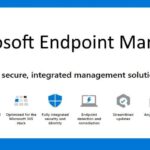Download Java MSI.
Java logo 512×512 for Microsoft EndPoint Configuration Manager (SCCM/MECM/MEMCM) deployments:

Java 8.0.2710.9
IANA Data 2020a
JDK 8u271 contains IANA time zone data version 2020a. For more information, refer to Timezone Data Versions in the JRE Software.
Security Baselines
The security baselines for the Java Runtime Environment (JRE) at the time of the release of JDK 8u271 are specified in the following table:
| JRE Family Version | JRE Security Baseline (Full Version String) |
|---|---|
| 8 | 1.8.0_271-b09 |
| 7 | 1.7.0_281-b06 |
Keeping the JDK up to Date
Oracle recommends that the JDK is updated with each Critical Patch Update (CPU). In order to determine if a release is the latest, the following Security Baseline page can be used to determine which is the latest version for each release family.
Critical patch updates, which contain security vulnerability fixes, are announced one year in advance on Critical Patch Updates, Security Alerts and Bulletins. It is not recommended that this JDK (version 8u271) be used after the next critical patch update scheduled for January 19, 2021.
Java SE Subscription customers managing JRE updates/installs for large number of desktops should consider using Java Advanced Management Console (AMC).
For systems unable to reach the Oracle Servers, a secondary mechanism expires this JRE (version 8u271) on February 20, 2021. After either condition is met (new release becoming available or expiration date reached), the JRE will provide additional warnings and reminders to users to update to the newer version. For more information, see 23.1.2 JRE Expiration Date in the Java Platform, Standard Edition Deployment Guide.
New Features
Weak Named Curves in TLS, CertPath, and Signed JAR Disabled by Default
Weak named curves are disabled by default by adding them to the following disabledAlgorithms security properties: jdk.tls.disabledAlgorithms, jdk.certpath.disabledAlgorithms, og jdk.jar.disabledAlgorithms. The named curves are listed below.
With 47 weak named curves to be disabled, adding individual named curves to each disabledAlgorithms property would be overwhelming. To relieve this, a new security property, jdk.disabled.namedCurves, is implemented that can list the named curves common to all of the disabledAlgorithms properties. To use the new property in the disabledAlgorithms properties, precede the full property name with the keyword include. Users can still add individual named curves to disabledAlgorithms properties separate from this new property. No other properties can be included in the disabledAlgorithms properties.
To restore the named curves, remove the include jdk.disabled.namedCurves either from specific or from all disabledAlgorithms security properties. To restore one or more curves, remove the specific named curve(s) fra jdk.disabled.namedCurves property.
Curves that are disabled through jdk.disabled.namedCurves include the following: secp112r1, secp112r2, secp128r1, secp128r2, secp160k1, secp160r1, secp160r2, secp192k1, secp192r1, secp224k1, secp224r1, secp256k1, sect113r1, sect113r2, sect131r1, sect131r2, sect163k1, sect163r1, sect163r2, sect193r1, sect193r2, sect233k1, sect233r1, sect239k1, sect283k1, sect283r1, sect409k1, sect409r1, sect571k1, sect571r1, X9.62 c2tnb191v1, X9.62 c2tnb191v2, X9.62 c2tnb191v3, X9.62 c2tnb239v1, X9.62 c2tnb239v2, X9.62 c2tnb239v3, X9.62 c2tnb359v1, X9.62 c2tnb431r1, X9.62 prime192v2, X9.62 prime192v3, X9.62 prime239v1, X9.62 prime239v2, X9.62 prime239v3, brainpoolP256r1, brainpoolP320r1, brainpoolP384r1, brainpoolP512r1
Curves that remain enabled are: secp256r1, secp384r1, secp521r1, X25519,
Support for Kerberos Cross-Realm Referrals (RFC 6806)
The Kerberos client has been enhanced with the support of principal name canonicalization and cross-realm referrals, as defined by the RFC 6806 protocol extension.
As a result of this new feature, the Kerberos client can take advantage of more dynamic environment configurations and does not necessarily need to know (in advance) how to reach the realm of a target principal (user or service).
Support is enabled by default and 5 is the maximum number of referral hops allowed. To turn it off, set the sun.security.krb5.disableReferrals security or system property to false. To configure a custom maximum number of referral hops, set the sun.security.krb5.maxReferrals security or system property to any positive value.
Improve Certificate Chain Handling
A new system property, jdk.tls.maxHandshakeMessageSize, has been added to set the maximum allowed size for the handshake message in TLS/DTLS handshaking. The default value of the system property is 32768 (32 kilobytes).
A new system property, jdk.tls.maxCertificateChainLength, has been added to set the maximum allowed length of the certificate chain in TLS/DTLS handshaking. The default value of the system property is 10.
Tools Warn If Weak Algorithms Are Used
De keytool og jarsigner tools have been updated to warn users when weak cryptographic algorithms are used in keys, certificates, and signed JARs before they are disabled. The weak algorithms are set in the jdk.security.legacyAlgorithms security property in the java.security configuration file. In this release, the tools issue warnings for the SHA-1 hash algorithm and 1024-bit RSA/DSA keys.
Support for canonicalize in krb5.conf
The ‘canonicalize’ flag in the krb5.conf file is now supported by the JDK Kerberos implementation. When set to true, RFC 6806 name canonicalization is requested by clients in TGT requests to KDC services (AS protocol). Otherwise, and by default, it is not requested.
The new default behavior is different from JDK 14 and previous releases where name canonicalization was always requested by clients in TGT requests to KDC services (provided that support for RFC 6806 was not explicitly disabled with the sun.security.krb5.disableReferrals system or security properties).
Removed Features and Options
Java Plugin is Removed from JDK 8u for Linux, Solaris, and MacOS Platforms
NPAPI is considered to be a vulnerable plugin and has been disabled in many browsers. No browsers currently support Java Plugin, which is NPAPI-based, on Linux, Solaris, and MacOS platforms.
Starting from 8u271, the part of Java Plugin responsible for integration and interaction with a browser (in particular libnpjp2 library) and an associated artifact will not be built and is not part of the JRE distribution on Linux, Solaris, and MacOS platforms.
Other notes
Added Property to Control LDAP Authentication Mechanisms Allowed to Authenticate Over Clear Connections
A new environment property, jdk.jndi.ldap.mechsAllowedToSendCredentials, has been added to control which LDAP authentication mechanisms are allowed to send credentials over clear LDAP connections – a connection not secured with TLS. An encrypted LDAP connection is a connection opened by using ldaps scheme, or a connection opened by using ldap scheme and then upgraded to TLS with a STARTTLS extended operation.
The value of the property, which is by default not set, is a comma separated list of the mechanism names that are permitted to authenticate over a clear connection. If a value is not specified for the property, then all mechanisms are allowed. If the specified value is an empty list, then no mechanisms are allowed (except for none og anonymous). The default value for this property is ‘null’ ( i.e. System.getProperty("jdk.jndi.ldap.mechsAllowedToSendCredentials") returns ‘null’). To explicitly permit all mechanisms to authenticate over a clear connection, the property value can be set to "all". If a connection is downgraded from encrypted til clear, then only the mechanisms that are explicitly permitted are allowed.
The property can be supplied to the LDAP context environment map, or set globally as a system property. When both are supplied, the environment map takes precedence.
Note: none og anonymous authentication mechanisms are exempted from these rules and are always allowed regardless of the property value.
Added 3 SSL Corporation Root CA Certificates
The following root certificates have been added to the cacerts truststore:
+ SSL Corporation
+ sslrootrsaca
DN: CN=SSL.com Root Certification Authority RSA, O=SSL Corporation, L=Houston, ST=Texas, C=US
+ sslrootevrsaca
DN: CN=SSL.com EV Root Certification Authority RSA R2, O=SSL Corporation, L=Houston, ST=Texas, C=US
+ sslrooteccca
DN: CN=SSL.com Root Certification Authority ECC, O=SSL Corporation, L=Houston, ST=Texas, C=US
Added Entrust Root Certification Authority – G4 certificate
The following root certificate has been added to the cacerts truststore:
+ Entrust
+ entrustrootcag4
DN: CN=Entrust Root Certification Authority - G4, OU="(c) 2015 Entrust, Inc. - for authorized use only",
OU=See www.entrust.net/legal-terms, O="Entrust, Inc.", C=US
8u RPM Installer Failed to Install on SUSE When Updating Alternatives
Communication with the alternatives framework of JDK RPM installer starting from 8u261 has changed. JDK RPM installers of prior versions registered two groups of symbolic links with alternatives framework, java og javac. Some names of links in these groups were duplicated, which resulted in installation failures for some versions of alternatives framework. The JDK RPM installer beginning with 8u261 doesn’t register the javac group with alternatives framework. All links unique to the javac group have been moved into the java group, but the set of symbolic links registered by the installer have not changed; only the duplicated links have been dropped.
The implication of this change is that if this version of JDK and 8u251 or older versions of the JDK are installed and the previous version is uninstalled, the symbolic links from the java group that are managed by the alternatives framework will be deleted. To restore deleted links, køre kommandoen:
[macos] Invisible (or Hidden) Text in the Installer Window Using Mac’s Dark Mode
Some text in the Installer window is hidden/invisible when using Dark mode on macOS. To workaround this issue, switch to Light mode when running the installer.
Enhanced Support of Proxy Class
The deserialization of java.lang.reflect.Proxy objects can be limited by setting the system property jdk.serialProxyInterfaceLimit. The limit is the maximum number of interfaces allowed per Proxy in the stream. Setting the limit to zero prevents any Proxies from being deserialized including Annotations, a limit of less than 2 might interfere with RMI operations.
x86
msiexec.exe /i "jre1.8.0_271.msi"/qn JU=0 JAVAUPDATE=0 AUTOUPDATECHECK=0 RebootYesNo=No WEB_JAVA=1
x64
msiexec.exe /i "jre1.8.0_27164.msi" /qn JU=0 JAVAUPDATE=0 AUTOUPDATECHECK=0 RebootYesNo=No WEB_JAVA=1 REMOVEOLDERJRES=1
For uninstall use:
x86
msiexec /x {26A24AE4-039D-4CA4-87B4-2F32180271F0} /qn /norestart
x64
msiexec /x {26A24AE4-039D-4CA4-87B4-2F64180271F0} /qn /norestart




















